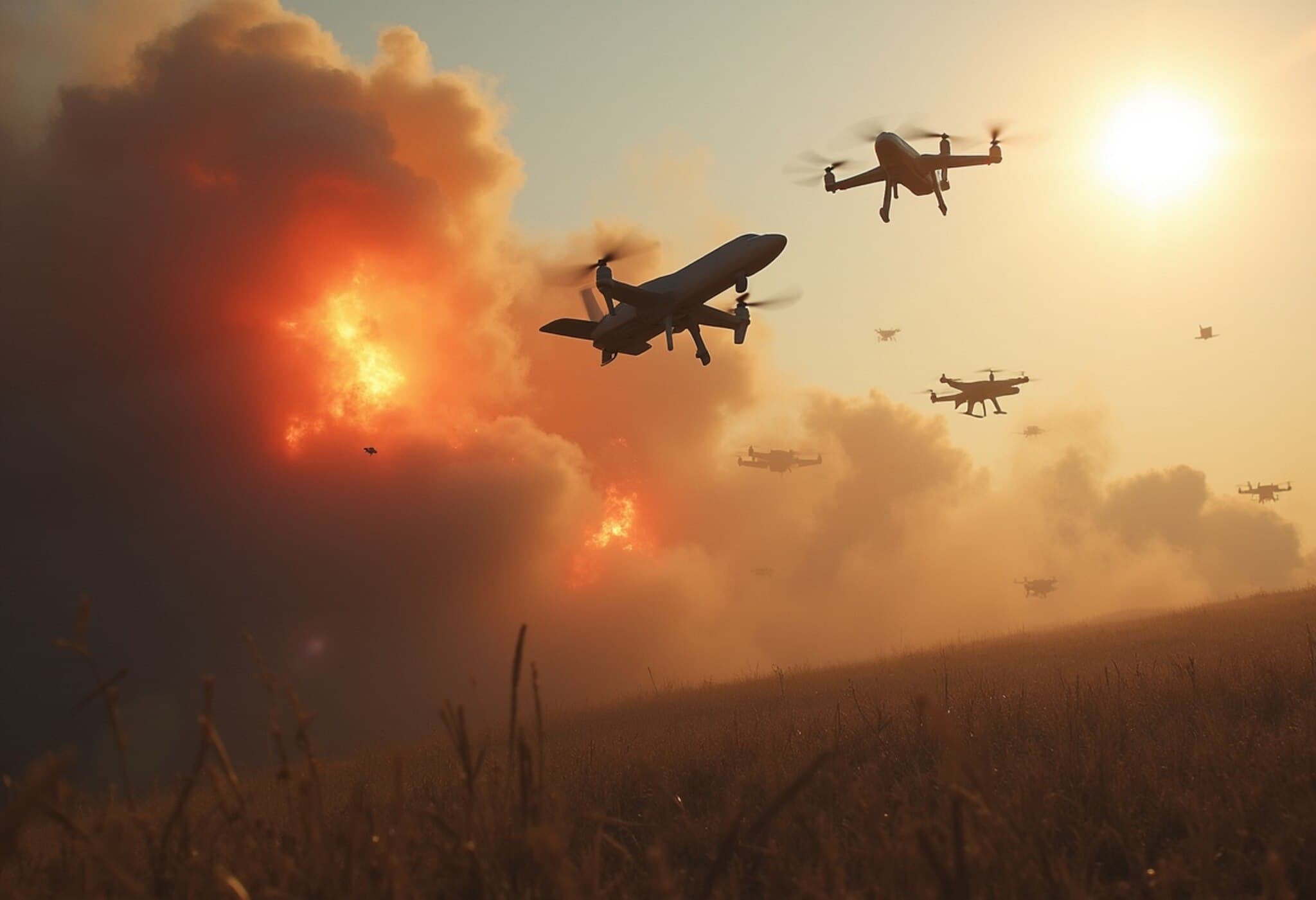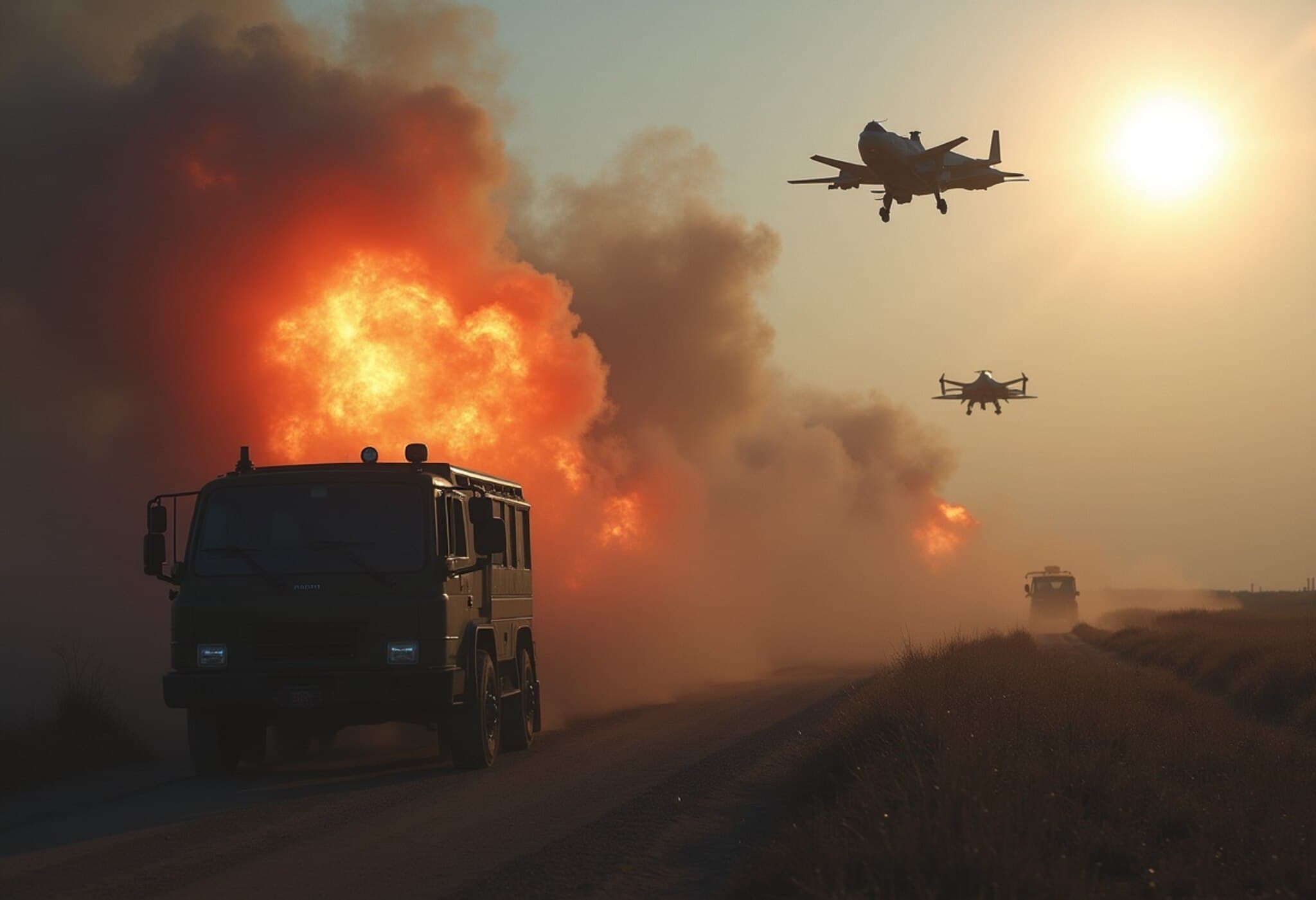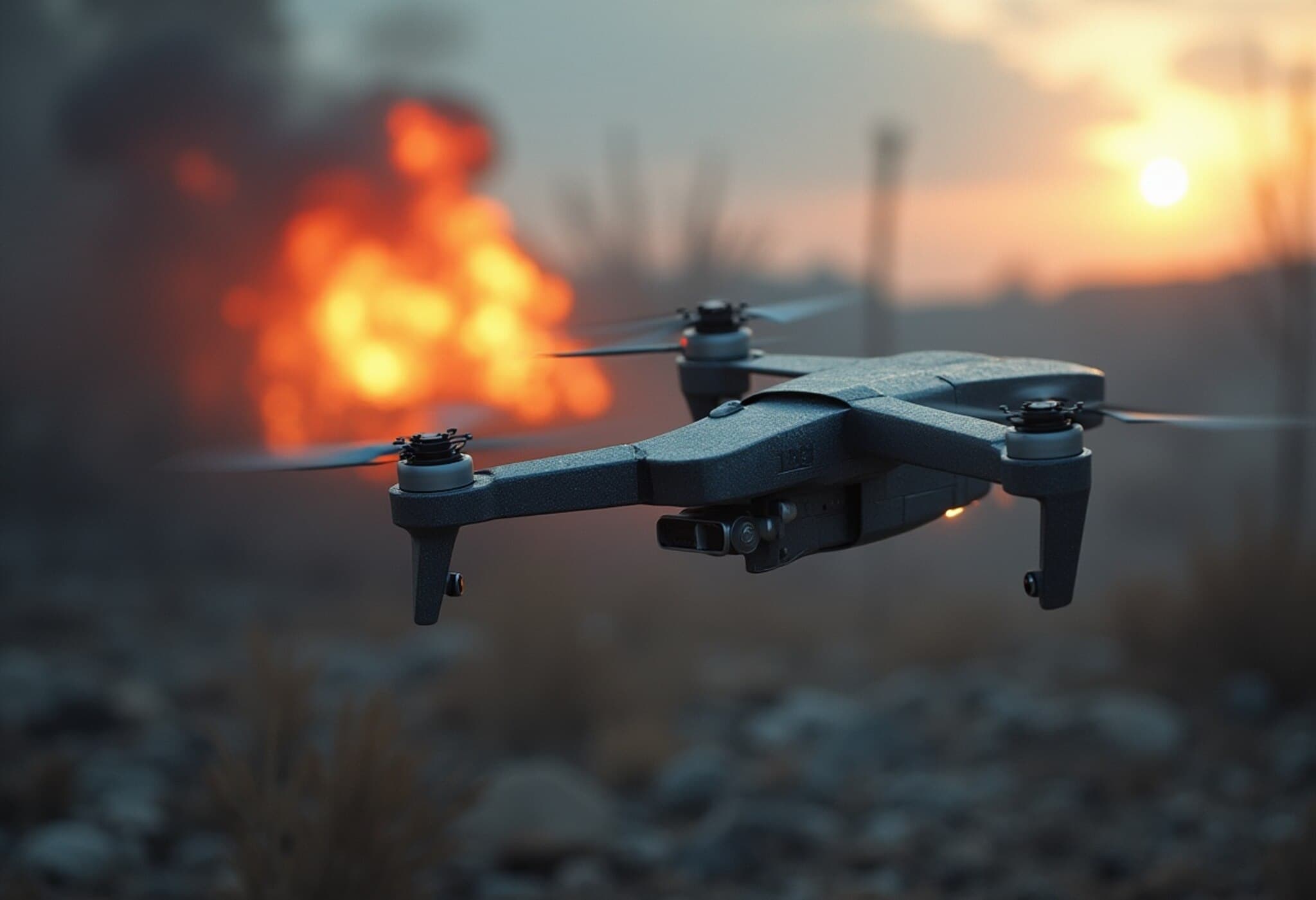Ukrainian Drone Attacks Shake Transportation in Volgograd
In a renewed escalation of conflict along contested borders, Ukrainian drone incursions have caused significant disruptions to transportation infrastructure in Russia's Volgograd region. Overnight, Russian air defence units intercepted and destroyed several Ukrainian drones, but debris from the downed drones damaged railway power lines, leading to train service interruptions.
Details of the Drone Interceptions and Infrastructure Impact
The Russian Ministry of Defence confirmed that nine Ukrainian drones were shot down over Volgograd during the night, while a total of 99 drones were intercepted across 12 Russian regions, including the Crimean Peninsula and over the Black Sea. Local authorities reported that fallen debris damaged power lines servicing the rail network, disrupting train operations in multiple parts of the region.
Regional Governor Andrei Bocharov assured residents via Telegram that no injuries were reported amid the incident, but the damage caused logistical complications for both civilian and possibly military transit.
Air Traffic Suspended at Volgograd Airport
Following the drone strikes, Russia's civil aviation authority, Rosaviatsia, promptly announced the temporary suspension of all flight operations at Volgograd Airport shortly after midnight. As of Sunday morning, flights remained grounded, highlighting the broader ripple effects of the attack beyond the railways.
Contextualizing the Attacks Within the Ongoing Conflict
While Kyiv has not officially commented on this specific incident, Ukrainian officials have consistently framed drone and missile strikes on Russian territory as a form of retaliation against Moscow’s continued military actions since the 2022 invasion began. These attacks often focus on infrastructure critical to Russian military logistics and transport, aiming to degrade Moscow’s operational capabilities.
Experts note that targeting transport nodes like railways and airports can significantly hamper Russia’s ability to mobilize resources, suggesting that such tactics reflect a calculated effort to apply strategic pressure behind the frontlines.
Expert Insight: The Broader Implications
From a defense analyst perspective, the increasing frequency and reach of drone strikes into Russian territory indicate a growing sophistication and boldness in Ukraine's asymmetric warfare tactics. Such operations not only disrupt Russian logistics but raise questions about the effectiveness of Russia’s layered air defence systems, given the high volume of drones shot down.
Moreover, the collateral damage to civilian infrastructure and potential disruption to everyday life in regions like Volgograd also underscore the enduring human and economic costs of the conflict, beyond battlefield engagements.
Key Takeaways
- 99 Ukrainian drones were intercepted by Russian defences across multiple regions overnight.
- Damage to railway power lines in Volgograd led to significant train delays.
- Volgograd Airport remains closed temporarily due to security concerns post-strikes.
- No casualties reported, but infrastructural impact affects civilian mobility and logistics.
- Attacks form part of Ukraine's broader strategy to target critical infrastructure in retaliation.
Editor's Note
This episode in the ongoing Russia-Ukraine conflict highlights how modern warfare increasingly intertwines military objectives with critical infrastructure disruption. It raises important questions about the escalation of asymmetrical tactics and the humanitarian implications for local populations caught in the crossfire. As drone technologies evolve and regions like Volgograd experience these tangible impacts firsthand, monitoring how both sides adapt will remain vital to understanding the conflict’s trajectory and its ripple effects across Eurasia.












